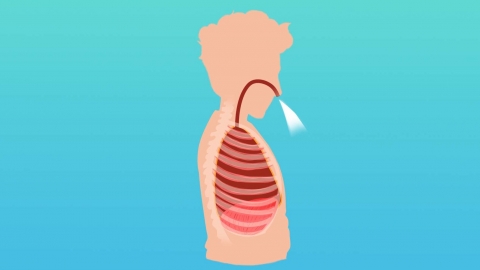Does atelectasis affect respiratory function?
Atelectasis may or may not affect respiratory function, depending on the severity of the condition. If the atelectasis is mild, it may not significantly impact respiratory function. However, if it is severe, it may impair respiratory function. If you experience any discomfort, it is recommended to seek timely medical attention and receive treatment under a doctor's guidance. Detailed analysis is as follows:

If the degree of atelectasis is mild and only affects a small portion of the lung, the impact on overall respiratory function may be minimal. The patient might experience only slight shortness of breath or have no obvious symptoms. In such cases, appropriate treatments such as physical therapy, oxygen therapy, and bronchodilators can help reinflate the lungs and improve respiratory function.
If the atelectasis is severe, it may lead to ventilation-perfusion mismatch in the lungs, preventing oxygen from entering the bloodstream effectively and carbon dioxide from being expelled efficiently, thereby causing difficulty breathing. Additionally, patients with atelectasis may experience a dry cough, which can result from irritation due to the collapsed lung tissue.
During the illness, patients should keep warm, avoid catching a cold or getting chilled, and refrain from consuming spicy or irritating foods to facilitate recovery.




